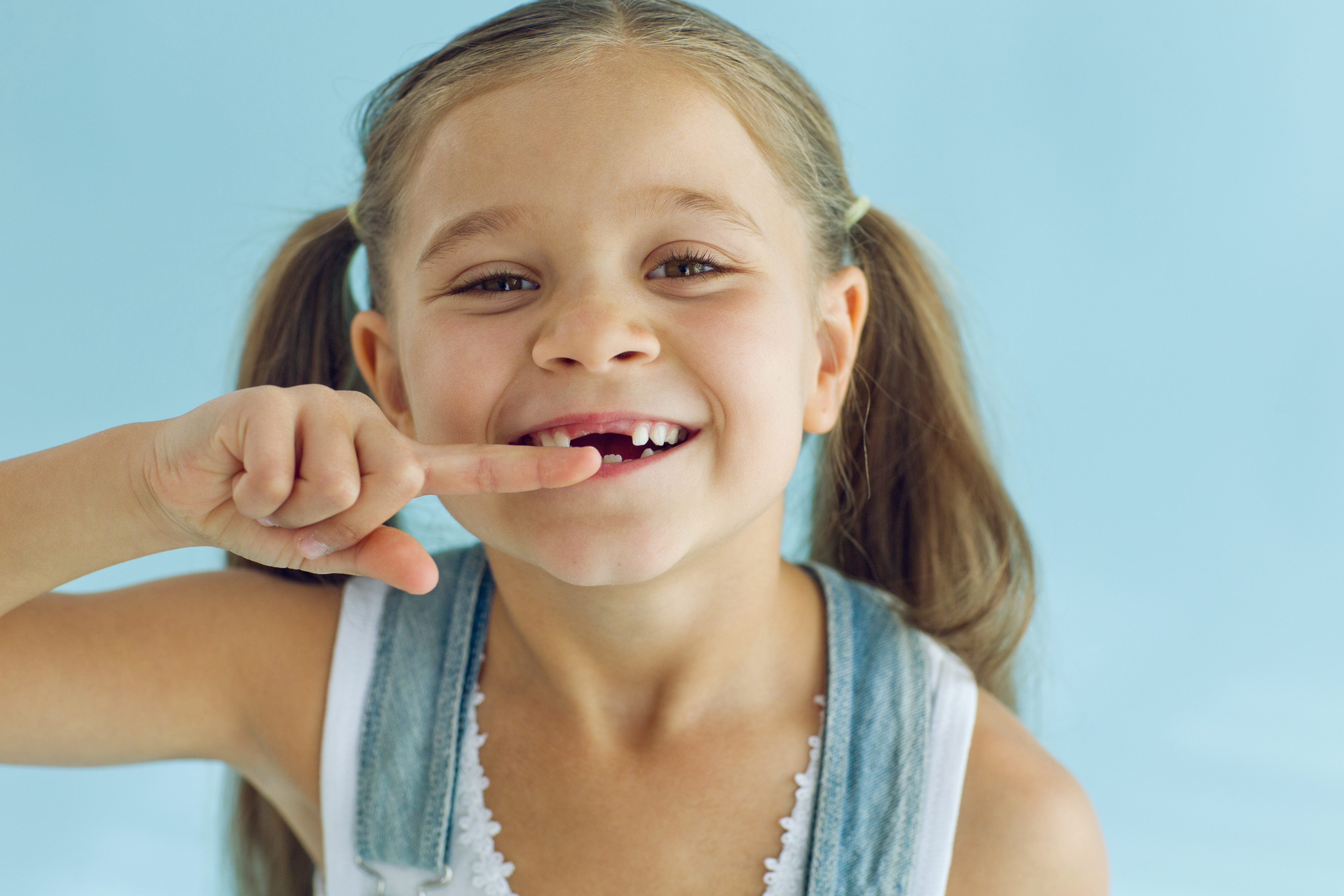
Baby teeth will generally begin to loosen and fall out at the age of six.
The natural process of losing baby teeth is one of the final milestones of childhood. Though every child will sprout and lose teeth at their own pace, generally, baby teeth will first appear at the age of six months, and then start to fall out when the child is about six years old.
Read on to learn more about what to expect when your child begins to lose their baby teeth — and what you need to know in order to stay on top of your child’s dental health in the long term.
How many baby teeth does my child have?
Also known as ‘milk teeth’ and ‘primary teeth’, all in all, your child will sprout and lose a total of 20 baby teeth in their lifetime. These will be replaced by the 32 permanent teeth found in adult mouths.
Usually, the first baby teeth to fall out are the two front teeth at the top and bottom of the mouth. Typically, these are followed, in order, by the lateral incisors, then the first molars, canines, and second molars. On average, a child will have lost all their baby teeth by the age of 12.
Why is it important to take care of baby teeth?
Although baby teeth only stay in the mouth for a comparatively short period of time, they play an important role in your child’s development and long-term dental health.
As well as reserving space in the mouth for the permanent teeth, baby teeth are vital in the process of developing clear speech. Healthy baby teeth can also help to maintain good nutrition, and it is important to remember that tooth decay and infection in baby teeth can, in fact, cause lasting damage to the permanent teeth developing beneath.
What do I do about a loose tooth?
For some children — and this is especially true after they’ve been introduced to the Tooth Fairy! — wiggling a loose tooth can be an irresistible pastime. However, this should be gently, but consistently, discouraged. It is never advisable to pull forcefully at a loose tooth; this can cause pain and damage, even if the tooth is ‘successfully’ removed from the mouth.
That said, in some cases, a very loose tooth can make eating and brushing difficult for the child. Here, experts recommend that take a piece of tissue paper and place it over the loose tooth in your child’s mouth. Gently squeeze the tissue paper. If the tooth is ready to come out, it will ‘fall away’ from the mouth without resistance.
What can my child expect from a dental visit?
Although it is important to schedule dental visits for your child from when their baby teeth first begin to appear, regular dental checkups become increasingly important once your child’s permanent teeth start to sprout.
Ideally, check-ups should be scheduled every six months. This will build your child’s comfort level in visiting the dentist and give the dentist the chance to properly monitor the development of your child’s teeth, allowing them to act quickly to treat any developing problems. During the children’s dental exam, the dentist will examine all your child’s teeth for decay, check their bite, and have a look for any other potential oral tissues. If required, the dentist or hygienist will clean your child’s teeth and assess the need for fluoride treatment.
How can we help?
At Murwillumbah Dental, we offer children’s dentistry services designed to help patients of all ages maintain optimal oral health.
We are a family friendly dental practice, committed to offering our patients exceptional services and a wide range of treatments suitable for most dental issues. Our team of well experienced and highly recommended dental professionals are known for their expertise, compassion and understanding. We are dedicated to excellent oral health care and well-being, and making sure it is maintained thoroughly in children and adults.
If you would like to find out more about our children’s dentistry services, please have a look here.
To arrange an appointment to see us, please get in touch with us here.
Besides children’s dental treatments, some of our available dental treatments include tooth colouration and ceramic restorations, veneers, crowns, bridge work, Invisalign (clear/removable braces), and many more. To find out more about all of the treatments that we offer, please have a look here.
